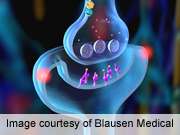Continuation phase cognitive therapy beneficial in depression

(HealthDay)—For patients with major depressive disorder, continuation phase cognitive therapy (C-CT) and fluoxetine prevent relapse; and, a cognitive behavioral prevention (CBP) program provides lasting benefits for some adolescents at risk for depressive disorders, according to two studies published online Sept. 4 in JAMA Psychiatry.
Robin B. Jarrett, Ph.D., from the University of Texas Southwestern Medical Center in Dallas, and colleagues examined the efficacy of C-CT and fluoxetine for relapse prevention in patients with recurrent major depressive disorder. A cohort of 523 patients entered acute phase CT. Responders at high risk of relapse were randomized to eight months of C-CT (86 patients), fluoxetine (86 patients), or pill placebo (69 patients). The researchers found that relapse was significantly less likely for the C-CT and fluoxetine groups versus pill placebo. C-CT patients were more likely to accept randomization, stayed in treatment longer, and attended more sessions than the fluoxetine and placebo groups.
William R. Beardslee, M.D., from the Boston Children's Hospital, and colleagues conducted a four-year study with 33 months of follow-up to examine the long-term effects of group CBP among 316 adolescent offspring of parents with current or prior depressive disorders. Participants had histories of depression, current elevated depression symptoms, or both. The researchers found that, compared with usual care, youth in the CBP condition had significantly fewer onsets of depressive episodes. The intervention effect was significantly modified by parental depression at baseline; CBP was superior to usual care when parents were not depressed at intake.
"The CBP program showed significant sustained effects compared with usual care in preventing the onset of depressive episodes in at-risk youth over a nearly three-year period," the authors write.
Several authors from the Jarrett study disclosed financial ties to the pharmaceutical industry. One author from the Beardslee study disclosed ties to UpToDate.
More information:
Abstract - Jarrett
Full Text (subscription or payment may be required)
Abstract - Beardslee
Full Text (subscription or payment may be required)
Copyright © 2013 HealthDay. All rights reserved.















